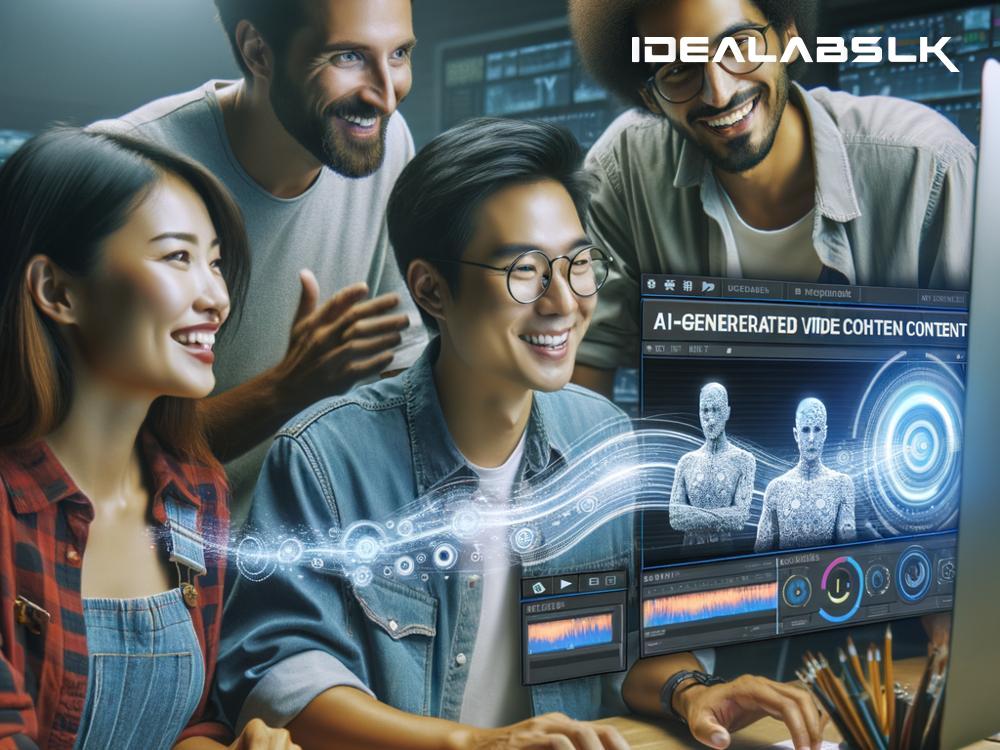AI in Video Production: Revolutionizing Content Creation
In recent years, artificial intelligence (AI) has been a buzzword in numerous industries, and the domain of video production is no exception. With the advent of sophisticated algorithms and machine learning technologies, the landscape of content creation is undergoing a significant transformation. The integration of AI in video production is not just automating mundane tasks but is also enhancing creativity, making the process more efficient and accessible to a broader range of creators. Let's dive into how AI is reshaping video production and what this means for content creators.
Automating the Tedious Tasks
At the heart of video production is a series of repetitive and time-consuming tasks, such as editing, color correction, and rendering. Traditionally, these tasks have required a significant investment of time and expertise. However, AI is changing the game by automating these processes. For example, AI-driven tools can now analyze hours of footage and identify the best shots, significantly reducing the time editors spend on sorting and selecting clips. Similarly, AI algorithms can automatically correct colors, balance exposure, and even render videos faster, streamlining the post-production process.
Enhancing Creativity
One of the most exciting aspects of AI in video production is its potential to boost creativity. AI tools can suggest edits, transitions, and effects based on the content's theme and the creator's past preferences, sparking new ideas and inspiration. Furthermore, AI can generate visual effects and animations, making it easier for creators to bring their visions to life, even without advanced skills in these areas. This democratization of video production tools means that more people can create high-quality and compelling content, irrespective of their technical expertise.
Streamlining Subtitles and Localization
Creating subtitles and localizing content for different languages and regions can be a meticulous and costly process. AI is simplifying this task through automatic speech recognition and translation technologies. Now, video creators can generate accurate subtitles in multiple languages within minutes, making their content accessible to a global audience. This not only expands the reach of videos but also enhances viewer engagement by providing a more inclusive viewing experience.
Transforming Stock Footage
Finding the perfect stock footage can be like searching for a needle in a haystack. AI is making this search easier and more intuitive by allowing creators to search using natural language queries or even sketches. Moreover, AI-powered platforms are now offering customizable stock footage, where aspects like the weather, time of day, and even the presence of specific objects or people can be altered, offering unparalleled flexibility to video creators.
Streamlining Collaboration
Collaboration is a critical component of video production, often involving teams scattered across different locations. AI is facilitating smoother collaboration through smart project management tools that can predict timelines, automate task assignments based on team members' strengths, and optimize workflows. This not only ensures that projects stay on track but also enhances team synergy and productivity.
Reducing Entry Barriers
Perhaps one of the most significant impacts of AI in video production is the reduction of entry barriers for aspiring creators. High-quality video content no longer requires expensive equipment or extensive technical know-how. AI-equipped smartphones and consumer-grade cameras, combined with intelligent editing software, are empowering a new generation of content creators. This is fostering a more diverse and vibrant content ecosystem, where unique voices and perspectives can find their audience.
Navigating Ethical Considerations
While the benefits of AI in video production are manifold, it's important to navigate this terrain with consideration for ethical implications, such as deepfakes and copyright issues. The industry is evolving to establish standards and regulations that ensure AI is used responsibly, preserving the integrity of content and protecting creators' rights.
Conclusion
AI in video production is not just a trend; it's a transformative force reshaping how content is created, edited, and shared. By automating tedious tasks, enhancing creativity, and reducing entry barriers, AI is enabling a more inclusive and dynamic content creation landscape. As we look toward the future, it's clear that AI will continue to play a pivotal role in video production, pushing the boundaries of what's possible and opening new horizons for creators worldwide. Exploring the potential of AI in this field promises an exciting journey into uncharted territories of creativity and innovation.

